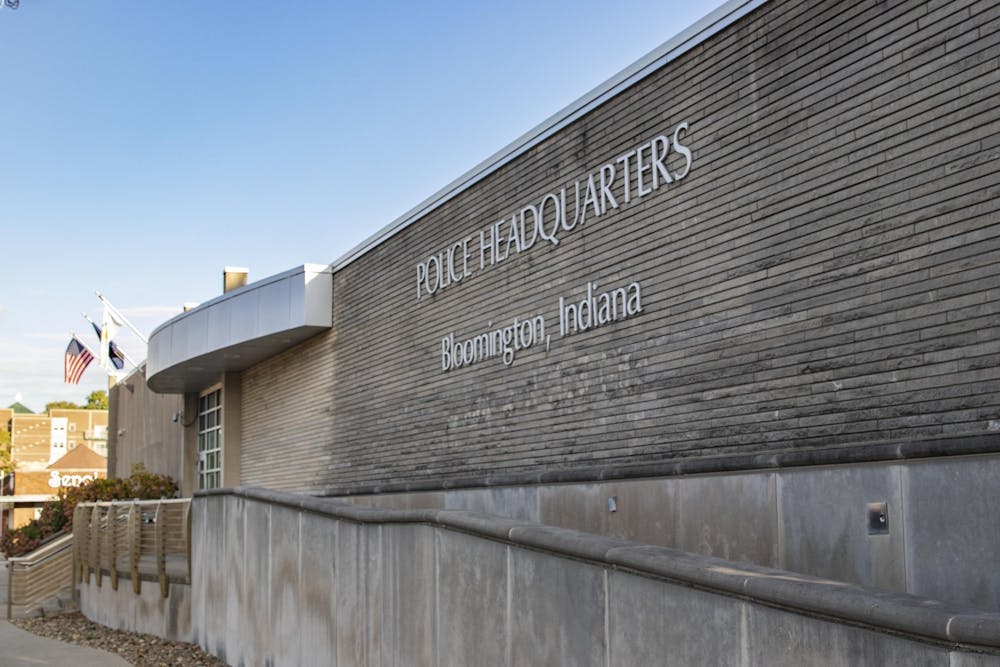The Bloomington City Council considered an ordinance to limit council meeting duration and a resolution to express support for pay raises for Bloomington Police Department officers Wednesday night.
The council discussed Mayor John Hamilton’s proposed budget weeks ago, and they’ll start considering more budget-related issues soon. The BPD budget was a topic of concern for many city councilmembers.
City Council Meeting Time Limits
Councilmember Stephen Volan proposed an ordinance which would limit the duration of council meetings, including committee meetings, from exceeding five and a half hours.
This legislation was introduced partly in response to a council meeting earlier this year to debate a bill to protect the city’s homeless population, which lasted nearly nine hours. Not more than two months after that meeting, Volan announced his plans to craft this legislation.
Volan’s proposal would also require meetings to end at 11:59 p.m. regardless of start time. Most council meetings start at 6:30 p.m., meaning they would end at midnight following the five-and-a-half hour standard.
“No one basically should have to be at a council meeting past midnight,” Volan said Wednesday.
At that nine-hour council meeting in March, Volan was part of a group with three other council members who proposed ending the meeting, but they never achieved the majority vote to adjourn. The group of four could have left the meeting, effectively ending the council’s quorum.
“It’s such an extreme step,” Volan said in an interview with the Indiana Daily Student in April. “Yes, we could’ve left. We were too tired to think of it.”
Under the proposal, the only way a meeting could continue past five and a half hours or 11:59 p.m. is if all members present allow the meeting to continue. If any one councilmember wishes to adjourn the meeting, the meeting would end.
If the council wants to pause and meet another day, the meeting must be scheduled to start at least 24 hours from the beginning of the initial meeting. This part of the proposal is included to prevent a councilmember from simply starting the meeting again after midnight to in effect continue the original meeting.
The council gave mixed opinions on this proposal, with four members of the council signaling support. Council President Jim Sims was the only councilmember to specifically say he’d oppose the legislation. Four members abstained. A final vote will be taken at a future city council meeting.
Bloomington Police Department Salaries
The council debated a resolution calling for an increase in BPD sworn officer salaries in response to a dwindling retention rate of such officers.
Right now, the mayor’s budget suggests the city’s goal is to hire 105 sworn officers, a position defined as having arresting power and wearing a badge. Only 93 sworn officers have been hired as of August, and 76 of those are readily available for dispatch.
The resolution is non-binding, meaning this resolution represents the council's desire to see Hamilton adjust his 2022 budget proposal to include these pay increases. The mayor and the police chief announced their opposition to the council's resolution in a press release hours before Wednesday's meeting.
This topic was contentious among council members and residents who spoke during public comment. Since the council’s decision is non-binding and because officer salaries are negotiated with a union, council members debated whether it was the council’s place to pass this resolution.
“This topic is well within our domain,” councilmember and resolution co-sponsor Dave Rollo said. “We set salaries.”
The discussion around salaries amongst council members gradually broadened to the larger issue of public safety. Councilmember Kate Rosenbarger said she felt the issue of public safety could be improved with more social workers and resource officers rather than necessarily sworn officers, a counter to councilmember and co-sponsor Ron Smith’s suggestion to cut funding in those areas.
“I don't agree with councilmember Smith's idea to stop funding resource officers to find more police officers,” Rosenbarger said. “For me and my value system, that is moving the opposite direction of where I think we should be going with public safety in this city.”
Despite some objections, the council still largely approved the resolution with seven votes while Rosenbarger abstained.
David Wolfe Bender contributed reporting.




